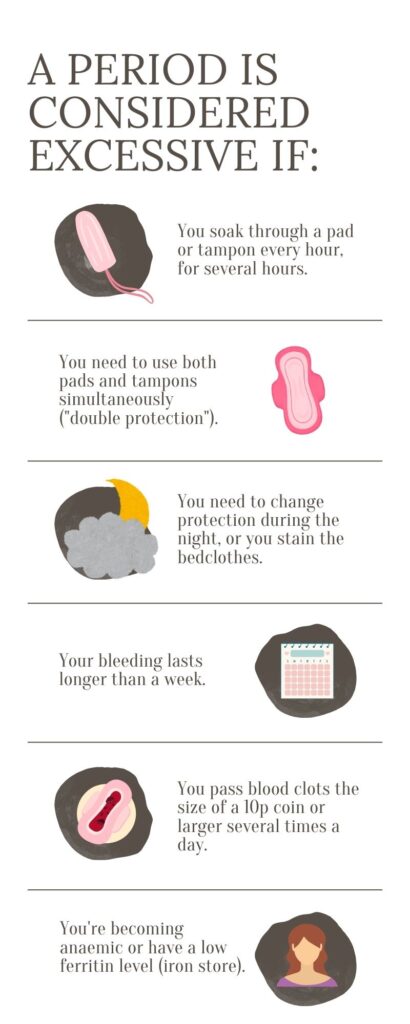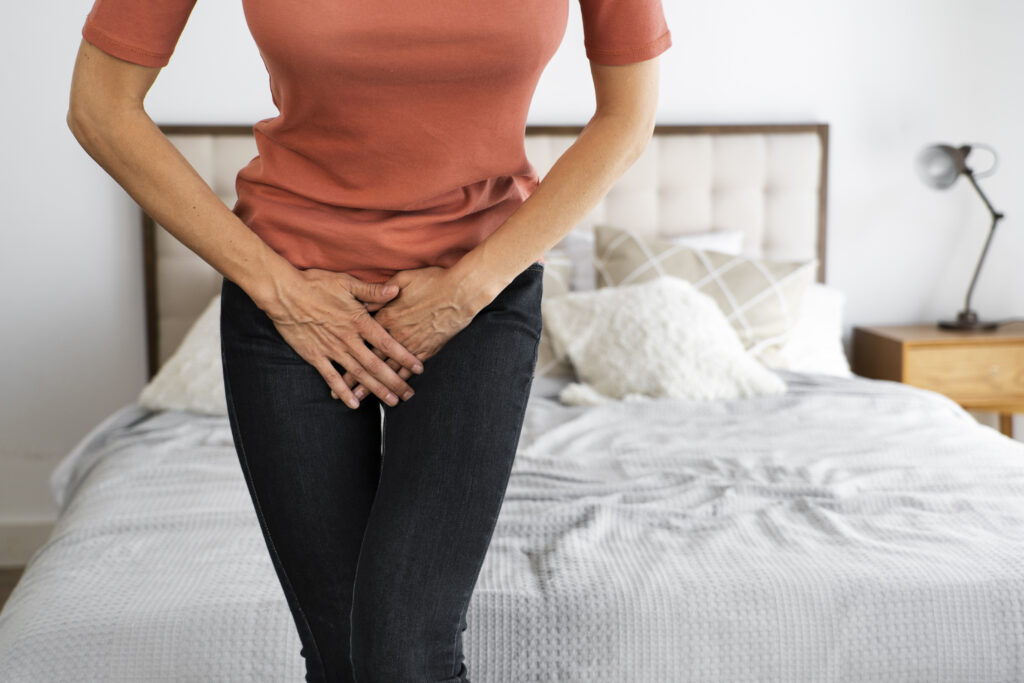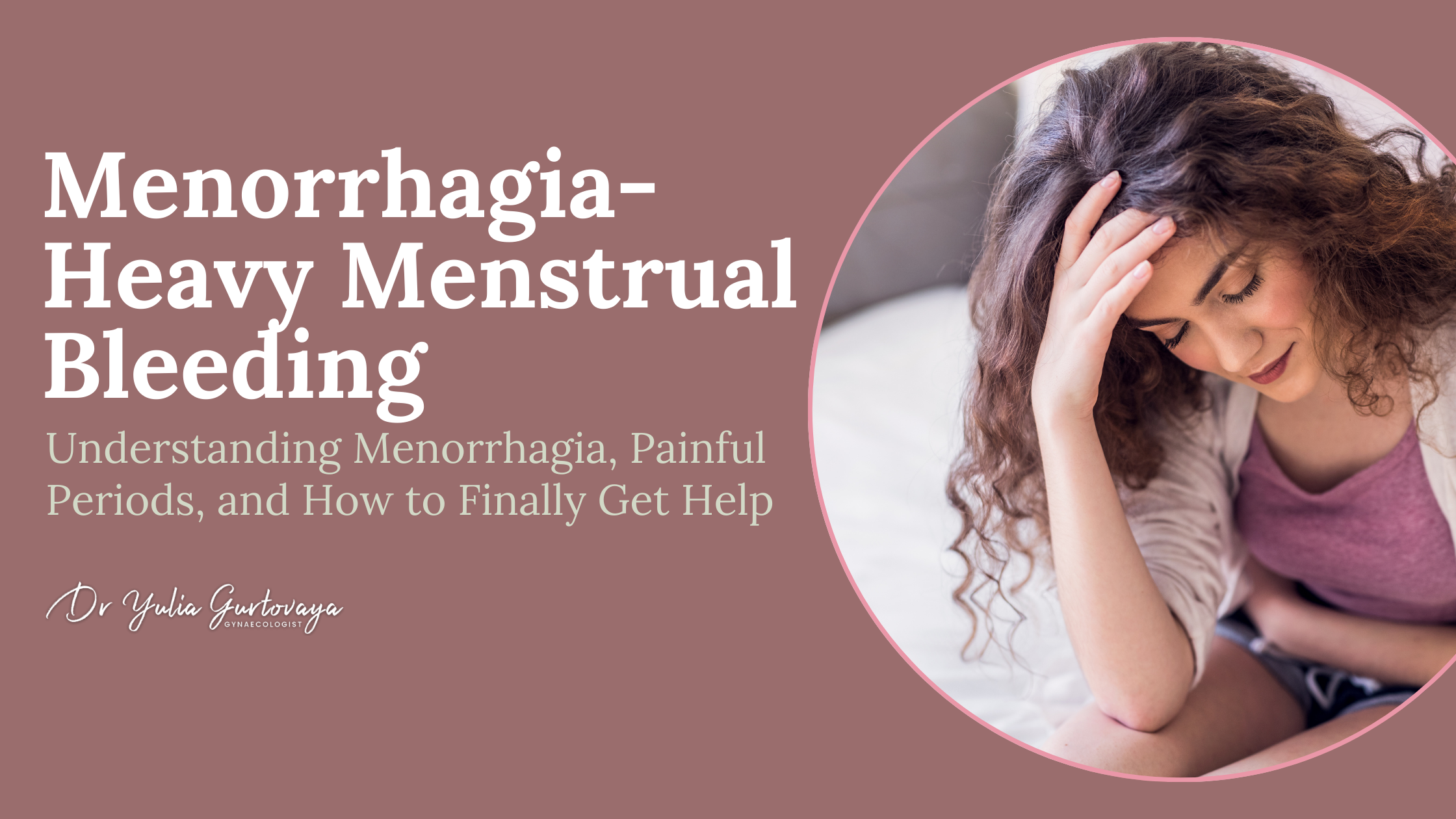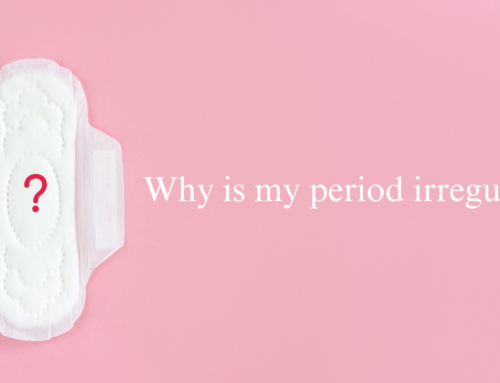Understanding Menorrhagia, Painful Periods, and How to Finally Get Help
If you’ve ever sat down, utterly exhausted, wondering, “Why is my period so heavy this month?” — please know you are not alone.
Heavy bleeding and painful periods affect millions of women. But far too many are told to just tolerate it. I see women every week in my clinic who have been battling excessive period bleeding and painful periods, only to be told it’s “normal” or “something to put up with.”
It isn’t.
Endometriosis Symptoms
Menorrhagia — heavy menstrual bleeding — is not something you should have to endure silently. Neither is passing massive blood clots during menstruation or feeling so drained by blood loss that you’re struggling to get through the day.
In this blog, I’ll walk you through:
- What’s considered excessive bleeding
- What it means if you’re passing clots
- Why your period might be unusually heavy this month
- Signs you’re losing too much blood during your period
- What investigations and treatments are available
- And most importantly: how to stop excessive period bleeding.
You deserve answers — and solutions.
What Exactly Is an “Excessive Period”?
It’s not always easy to know if your period counts as “excessive.” Many women have been conditioned to believe that heavy bleeding is just part of life. But let’s set the record straight.
A period is considered excessive if:
- You soak through a pad or tampon every hour, for several hours.
- You need to use both pads and tampons simultaneously (“double protection”).
- You need to change protection during the night.
- Your bleeding lasts longer than seven days.
- You pass frequent or large clots in your period.
- You pass blood clots the size of a 10p coin or larger several times a day
When these signs are present, your body is telling you something isn’t right. If you’re losing this much blood, it can quickly lead to anaemia, fatigue, and exhaustion. These aren’t inconveniences — they are medical red flags.
Clots in Your Period: What Do They Really Mean?
Passing clots in your period can be unsettling. Some small clots, especially on heavy flow days, are fairly common. However, when you start noticing excessive blood clots in your period, or massive blood clots during menstruation, it’s time to take notice.
Clots form when heavy bleeding accumulates in the uterus faster than it can flow out, allowing the blood to thicken and clump. If you’re consistently passing clots larger than a 10p coin, or experiencing multiple clots during your period, we need to explore why.
Possible causes include:
- Hormonal imbalances
- Fibroids
- Adenomyosis
- Blood clotting disorders
- Endometrial hyperplasia
Don’t feel embarrassed to talk about clots — they’re a vital clue in understanding what’s happening with your body.

Why Is My Period So Heavy This Month?
You might be thinking, “But my periods were never this heavy before — why now?”
Changes in your cycle can be driven by:
- Hormonal fluctuations (especially around perimenopause)
- Thyroid disorders
- Fibroids or polyps
- Adenomyosis or endometriosis
- Use of certain medications (like blood thinners)
- Stress or weight changes
- Blood clotting disorders
Even if your previous periods were manageable, if you’re suddenly facing an excessive period, I’ll always recommend that we investigate. Fluctuations can be completely normal, but they can also signal something deeper.
Painful Periods and Heavy Bleeding: A Common but Overlooked Combination
There is a dangerous normalisation of painful periods. So many women are told that severe cramping is just part of womanhood. But pain and heavy bleeding together is a red flag combination.
Let’s clarify:
- Primary dysmenorrhoea is the medical term for painful periods without underlying disease.
- Secondary dysmenorrhoea refers to pain caused by conditions like endometriosis or adenomyosis.
When pain is intense, prolonged, or accompanied by excessive blood clots in your period, it deserves proper medical attention.
You shouldn’t have to plan your life around your period. If your symptoms are stopping you in your tracks, please don’t ignore them.

Could It Be Endometriosis?
Endometriosis is a condition where tissue similar to the lining of the womb grows outside the uterus. It’s a common but underdiagnosed cause of both painful and heavy periods.
Symptoms include:
- Severe pain during or between periods
- Pain during or after sex
- Difficulty getting pregnant
- Excessive period bleeding
- Massive blood clots during menstruation
Other Silent Culprits: Adenomyosis, Fibroids, Polyps, and Blood Clotting Disorders
Besides endometriosis, several other conditions can cause menorrhagia — heavy menstrual bleeding and painful periods.
Adenomyosis
This is like endometriosis’ hidden sibling. In adenomyosis, the endometrial tissue grows into the muscle wall of the uterus.
The result? Severe period pain, excessive period bleeding, and sometimes fertility issues.
Fibroids
Fibroids are non-cancerous growths in the uterus. They increase the surface area inside the womb, often leading to heavier bleeding and more frequent clots.
Polyps
These soft growths on the womb lining can cause unexpected bleeding between periods and worsen menstrual flow.
Blood Clotting Disorders
If your body struggles to control bleeding effectively, you’ll naturally experience heavier periods, with excessive blood clots in your period.
Every one of these conditions is manageable once properly diagnosed.
Signs You’re Losing Too Much Blood During Your Period
When you’re experiencing heavy periods, it’s not just about the inconvenience. Excessive blood loss can lead to iron-deficiency anaemia.
Here’s what to watch out for:
- Fatigue that doesn’t improve with rest
- Dizziness or feeling light-headed
- Shortness of breath, even on mild exertion
- Pale skin or cold hands and feet
- Rapid or irregular heartbeat
- Brain fog or difficulty concentrating
If you recognise several of these signs, please see me. You could be losing more blood than your body can safely handle.

How Is Menorrhagia Diagnosed? Tests and Investigations
If you’re experiencing any of the symptoms we’ve discussed, it’s time for a thorough evaluation.
Here’s what I typically recommend:
- Pelvic examination to check for fibroids, polyps, or infections.
- Blood tests, including:
- Full blood count (to check for anaemia)
- Iron studies
- Thyroid function
- Clotting profile (essential if you’re passing massive blood clots during menstruation)
- Pelvic ultrasound to visualise the uterus and ovaries.
- Endometrial biopsy for women over 40 or with risk factors, to rule out abnormalities.
- Hysteroscopy — one of the most effective diagnostic tools I have.
I offer hysteroscopy as an outpatient service. Using a slim camera, I can look inside your uterus to check for polyps, fibroids, or a thickened womb lining.
If you prefer, I can also perform hysteroscopy under general anaesthetic, making it as comfortable as possible for you.
A clear diagnosis is the first step towards relief.
What Are the Best Treatments for Menorrhagia?
Treatment depends on the underlying cause, but rest assured — there are excellent options.
Medications
- Tranexamic acid to reduce bleeding.
- Anti-inflammatory medicines like ibuprofen to ease pain and lower flow.
- Hormonal therapies such as the combined pill, progestogen-only treatments, or the Mirena coil to regulate periods
Outpatient Procedures
- Hysteroscopy, performed in my clinic, can diagnose and often treat issues like polyps or fibroids in the same visit. I offer this under general anaesthetic if needed.
- Endometrial ablation – a heat treatment to the womb lining and reduce or stop bleeding.
Surgical Options
- Myomectomy to remove fibroids while preserving the womb.
- Hysterectomy as a final option when other treatments have failed — life-changing for many women.
Supportive Care
- Iron supplements and dietary changes to rebuild iron stores.
- Stress management and counselling to support emotional well-being.
The most important thing? You should never feel dismissed when you ask, “How do I stop a heavy period?”
How to Stop Excessive Period Bleeding
One of the most urgent and emotional questions women ask me is: “How to stop excessive period bleeding?”
The answer lies in a personalised, comprehensive approach:
- Start with a clear diagnosis.
- Consider medications like tranexamic acid or hormonal treatments.
- Explore minimally invasive procedures like outpatient hysteroscopy or endometrial ablation.
- Consider surgical solutions if needed, especially if fertility is not a concern.
- Support your body with iron, nutrition, and holistic care.

When to See a Doctor: Don’t Wait
If you’ve been silently enduring heavy, painful periods, please don’t delay.
See me if:
- Your period lasts more than seven days.
- You pass frequent or large clots.
- You experience fatigue, breathlessness, or dizziness.
- Period pain affects your daily life.
- You’re concerned about your fertility.
And trust your instincts — they are your best guide.
Final Thoughts: You Don’t Have to Live Like This
Living with menorrhagia — heavy menstrual bleeding is exhausting, physically and emotionally.
But you don’t have to keep going like this.
If you’ve recognised yourself in this article — whether it’s clots in your period, excessive blood clots in your period, or simply wondering, “Why is my period so heavy this month?” — it’s time to seek help.
I offer a full range of investigations, from blood tests to outpatient hysteroscopy with or without general anaesthetic. Together, we can get to the bottom of your symptoms and start a treatment plan that works for you so you can take back control of your periods and feel like yourself again.


